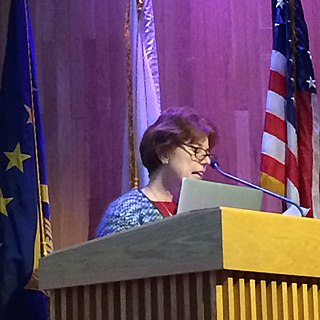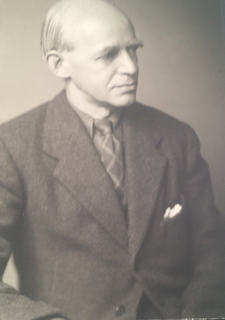
The Cambrian Archaeological Association was founded in 1846 to examine, preserve and illustrate the ancient monuments and remains of the history, language, manners, customs, arts and industries of Wales and the Welsh Marches and to educate the public in such matters. The association's activities include sponsoring lectures, field visits, and study tours; as well as publishing its journal, Archaeologia Cambrensis, and monographs. It also provides grants to support research and publications.
The 1990 Argentina rugby union tour of British Isles was a series of eight matches played by the Argentina national rugby union team in October and November 1990. It was the first time that the Pumas played the Ireland and Scotland senior national teams, whereas they had previously played the England senior teams at Buenos Aires in 1981 and 1990.

Barbara Jacak is a nuclear physicist who uses heavy ion collisions for fundamental studies of hot, dense nuclear matter. She is Director of the Nuclear Science Division, Lawrence Berkeley National Laboratory, and a professor of Physics at UC Berkeley. Before going to Berkeley, she was a member of the Department of Physics and Astronomy at Stony Brook University, where she held the rank of Distinguished Professor. She is a leading member of the collaboration that built and operates the PHENIX detector, one of the large detectors currently operating at the Relativistic Heavy Ion Collider at Brookhaven National Laboratory, and was involved in the discovery of the quark gluon plasma and its strongly coupled, liquid-like behavior. Throughout her career she has served on many advisory committees and boards including the National Research Council Committee on Nuclear Physics, and the Physical Review C Editorial Board.

Julian Parkhill FRS is a Professor in the Department of Veterinary Medicine at the University of Cambridge. He was previously head of Pathogen Genomics at the Wellcome Trust Sanger Institute.
The Burkitt Medal is awarded annually by the British Academy "in recognition of special service to Biblical Studies". Awards alternate between Hebrew Bible studies and New Testament studies. It was established in 1923 and has been awarded to many notable theologians. It is named in honour of Francis Crawford Burkitt.
Arthur Christopoulos is an Australian Professor of Analytical Pharmacology at Monash University. He is the recipient of numerous national and international awards, including the 2013 John J. Abel Award from the American Society for Pharmacology and Experimental Therapeutics and the Rand Medal from the Australasian Society of Clinical and Experimental Pharmacologists and Toxicologists, the 2014 IUPHAR Analytical Pharmacology Lecturer, a 2015 Doctor of Laws from the National and Kapodistrian University of Athens, Greece, the 2016 recipient of the Gaddum Memorial Award from the British Pharmacological Society and the 2016 GSK Award for Research Excellence. Since 2014, Clarivate Analytics have annually named him a Highly Cited Researcher in Pharmacology and Toxicology. In 2017 he was elected a Fellow of the Australian Academy of Health and Medical Sciences and in 2018 he was elected as a Councillor of the International Union of Basic and Clinical Pharmacology and a Fellow of the British Pharmacological Society. In 2019 he was appointed Dean of Monash University’s Faculty of Pharmacy and Pharmaceutical Sciences.
Bedangadas Mohanty is an Indian physicist specialising in experimental high energy physics, and is affiliated to National Institute of Science Education and Research, Bhubaneswar. He was awarded the Shanti Swarup Bhatnagar Prize for Science and Technology in 2015, the highest science award in India, in the physical sciences category. He has been elected as the fellow of the Indian National Science Academy, New Delhi, Indian Academy of Sciences, Bangalore and National Academy of Sciences, India.








